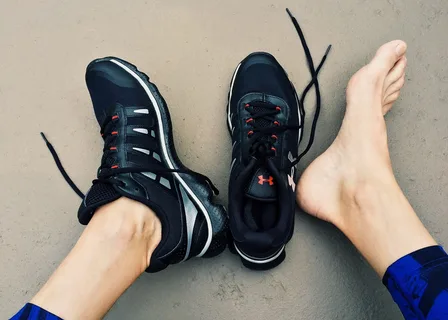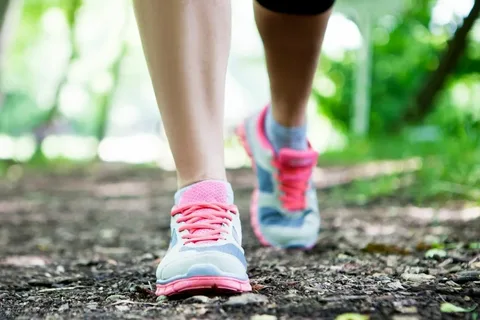Finding the perfect shoes for bunions can be a challenge. If you suffer from this condition, you know that ill-fitting shoes can cause extreme discomfort. The good news is that with the right information and understanding of what makes a great bunion-friendly shoe, you can find a pair that offers comfort and looks stylish. This comprehensive guide will provide all the information you need to find the best shoes for bunions.
What Are Bunions?
Bunions are common foot deformities characterised by a painful, bony bump at the base of the big toe. They often develop when the big toe pushes against the adjacent toe, causing the joint at the base of the big toe to enlarge and protrude. Bunions can result from genetic factors, improper footwear, or certain medical conditions.
Symptoms include pain, swelling, redness, and limited toe mobility. Over time, bunions can lead to difficulties walking and fitting into shoes comfortably. Non-surgical treatments like orthotics, proper footwear, and pain management can alleviate symptoms, while severe cases may require surgical correction to realign the toe joint.
Causes of Bunions
A variety of factors can cause bunions. While the exact cause is not fully understood, certain factors contribute to their development. One major factor is genetics, as bunions often run in families. If your parents or grandparents have bunions, you may also be more likely to develop them. Additionally, foot structure plays a role. Flat feet, low arches, or loose tendons can increase the risk of bunions.
Certain medical conditions can also contribute to bunions, such as arthritis. The joint inflammation associated with arthritis can lead to the development of bunions. Lastly, wearing ill-fitting shoes, especially ones that are too narrow or tight, can cause or exacerbate bunions. These shoes put pressure on the toes and force them out of their natural alignment.
Problems Caused By Ill-Fitting Shoes for People with Bunions
Ill-fitting shoes can cause a myriad of problems for people with bunions. First and foremost, they can exacerbate the pain and discomfort associated with this condition. Tight shoes can squeeze the toes together, putting pressure on the bunion and causing inflammation and swelling. The rubbing and friction caused by shoes that are too narrow can also lead to painful blisters and calluses. Moreover, ill-fitting shoes can worsen the deformity of the bunion itself.
The constant pressure and improper alignment of the toes can contribute to the progression of the bunion, making it even more difficult to find comfortable shoes in the future. Additionally, wearing shoes that don’t provide proper support and cushioning can increase the risk of other foot problems, such as corns, hammertoes, and plantar fasciitis. People with bunions must prioritise finding shoes that fit properly to alleviate discomfort and prevent further complications.
Characteristics to Look For In Shoes for Bunions
When looking for shoes that are suitable for bunions, there are certain characteristics you should consider. First and foremost, look for shoes with a wide-toe box. This allows your toes to spread out comfortably, reducing pressure on the bunion. Additionally, opt for shoes made from flexible and soft materials that will not constrict or rub against the bunion.
Adjustable closures such as laces, straps, or buckles are also beneficial as they allow you to customise the fit according to your needs. Good arch support is essential to alleviate pressure on the bunion and maintain proper foot alignment. Look for shoes with cushioned insoles that provide adequate shock absorption and cushioning to protect your feet from impact. Furthermore, consider shoes with a low or moderate heel height to avoid placing unnecessary strain on the bunion.
Flat or low-heeled shoes with a wide sole can distribute your body weight evenly and promote better balance and stability. Lastly, prioritise shoes designed for people with bunions or other foot conditions. These shoes often incorporate innovative features such as extra depth, stretchable materials, and extra padding to provide maximum comfort and accommodate the unique shape of your feet.
Types of Shoes Recommended For People with Bunions
When finding the perfect shoes for bunions, several types are highly recommended. One popular option is to look for shoes with a wide-toe box. This gives your toes ample space and reduces the pressure on the bunion. Another type to consider is shoes made from flexible and soft materials, such as leather or mesh, as they won’t constrict or rub against the bunion.
Adjustable closures, like laces, straps, or buckles, are also a great feature to look for. These allow you to customise the fit according to your needs, providing maximum comfort. Additionally, shoes with good arch support are essential for alleviating pressure on the bunion and maintaining proper foot alignment. Look for shoes with cushioned insoles that provide adequate shock absorption and cushioning.
Low or moderate heel heights are recommended for those who prefer some height. They help avoid unnecessary strain on the bunion and provide better balance and stability. Lastly, consider shoes designed for people with bunions or other foot conditions. These shoes often have innovative features, like extra depth, stretchable materials, and extra padding, to provide maximum comfort and accommodate the unique shape of your feet.
Tips for Finding the Best Shoes for Bunions
Finding the best shoes for bunions can be daunting, but with these tips, you’ll find the perfect pair. First, measure your feet accurately, as bunions can cause changes in foot size and shape. This will help you find shoes that fit properly and provide the right support. Additionally, shop for shoes later in the day when your feet are at their largest, as this will ensure a more accurate fit.
Next, prioritise comfort over style. Look for shoes with a wide toe box, soft and flexible materials, and adjustable closures to accommodate your bunions. Consider brands specialising in bunion-friendly footwear, as they will have features designed to alleviate discomfort. Don’t be afraid to try different styles and brands, as everyone’s feet are unique. Finally, don’t forget to care for your feet through regular stretching exercises and proper foot hygiene.
How to Find Brands That Specialise In Bunion-Friendly Shoes
When it comes to finding brands that specialise in bunion-friendly shoes, you can use a few strategies. First, do some research online. Look for brands that mention bunions or foot conditions in their product descriptions. These brands often design shoes with wide-toe boxes and cushioned insoles to accommodate bunions.
You can also read customer reviews to see if others with bunions have found their shoes comfortable and supportive. Another option is to visit a specialty shoe store or a podiatrist. They can recommend brands and styles that are known for being bunion-friendly. You may also find it helpful to consult with a podiatrist who can provide personalised recommendations based on your needs and foot shape.
Lastly, don’t be afraid to try different brands and styles. Everyone’s feet are unique, so what works for one person may not work for another. By exploring different options and finding brands prioritising foot health, you can increase your chances of finding the perfect bunion-friendly shoes.
Stretching Exercises to Alleviate Bunion Discomfort
Stretching exercises can be incredibly beneficial for alleviating bunion discomfort. These exercises can help improve the flexibility and strength of the muscles and tendons in your feet, reducing the pressure on the bunion and promoting better foot alignment. One effective stretching exercise is toe stretching. Sit in a chair and extend one leg, placing your foot flat on the ground. Use your hands to gently pull your big toe towards you, feeling a stretch in the arch of your foot.
Hold this position for 10-15 seconds, then release. Repeat this exercise several times on each foot. Another helpful exercise is calf stretching. Stand facing a wall and place your hands on the wall for support. Take a step back with one foot and keep it straight. Slowly lean forward, feeling a stretch in your calf. Hold for 10-15 seconds, then switch legs and repeat.
FAQ’s
1. Can bunions be treated without surgery?
Yes, bunions can often be managed without surgery. This may involve wearing bunion-friendly shoes, using orthotic inserts, stretching exercises, and practising good foot hygiene. Surgery is usually only considered in severe cases where conservative treatments have been ineffective in relieving symptoms.
2. How do I know if a shoe is bunion-friendly?
Look for shoes with a wide-toe box, soft and flexible materials, and adjustable closures. These features will provide ample room for your bunions and minimise pressure and friction. Additionally, consider shoes with good arch support and cushioning for added comfort and support.
3. What should I look for in the best shoes for bunions?
Look for best shoes for bunions with a wide toe box to provide ample space, choose models with cushioning and arch support for comfort and opt for adjustable closures like straps or laces for a customised fit.
4. Are there any specific exercises that can help with bunions?
Yes, stretching exercises can be beneficial for alleviating bunion discomfort. Some effective exercises include toe stretching and calf stretching. These exercises help improve flexibility and strength in the feet, reducing pressure on the bunions and promoting better foot alignment.
Conclusion
In conclusion, finding the right shoes for bunions is essential for relieving discomfort and maintaining foot health. By understanding the causes of bunions and the problems caused by ill-fitting shoes, you can make informed decisions when shopping for footwear. Look for shoes with wide-toe boxes, soft materials, and adjustable closures to accommodate your bunions. Consider brands that specialise in bunion-friendly shoes, and don’t be afraid to try different styles. Additionally, incorporating stretching exercises into your routine can help alleviate bunion discomfort. With these tips, you can find the perfect shoes for bunions that prioritise comfort and style.
| Other Good Articles to Read |
| Skank Blogs |
| Unreal Blogs |
| Tba Blogs |
| All City Forums |
| Dany Blogs |
| Refuge Blogs |
| The Music Blogs |
| Key Forums |
| The Big Blog Theory |
| Joe Blogs |
| Blogs 4 Me |
| Blogs Emon |



